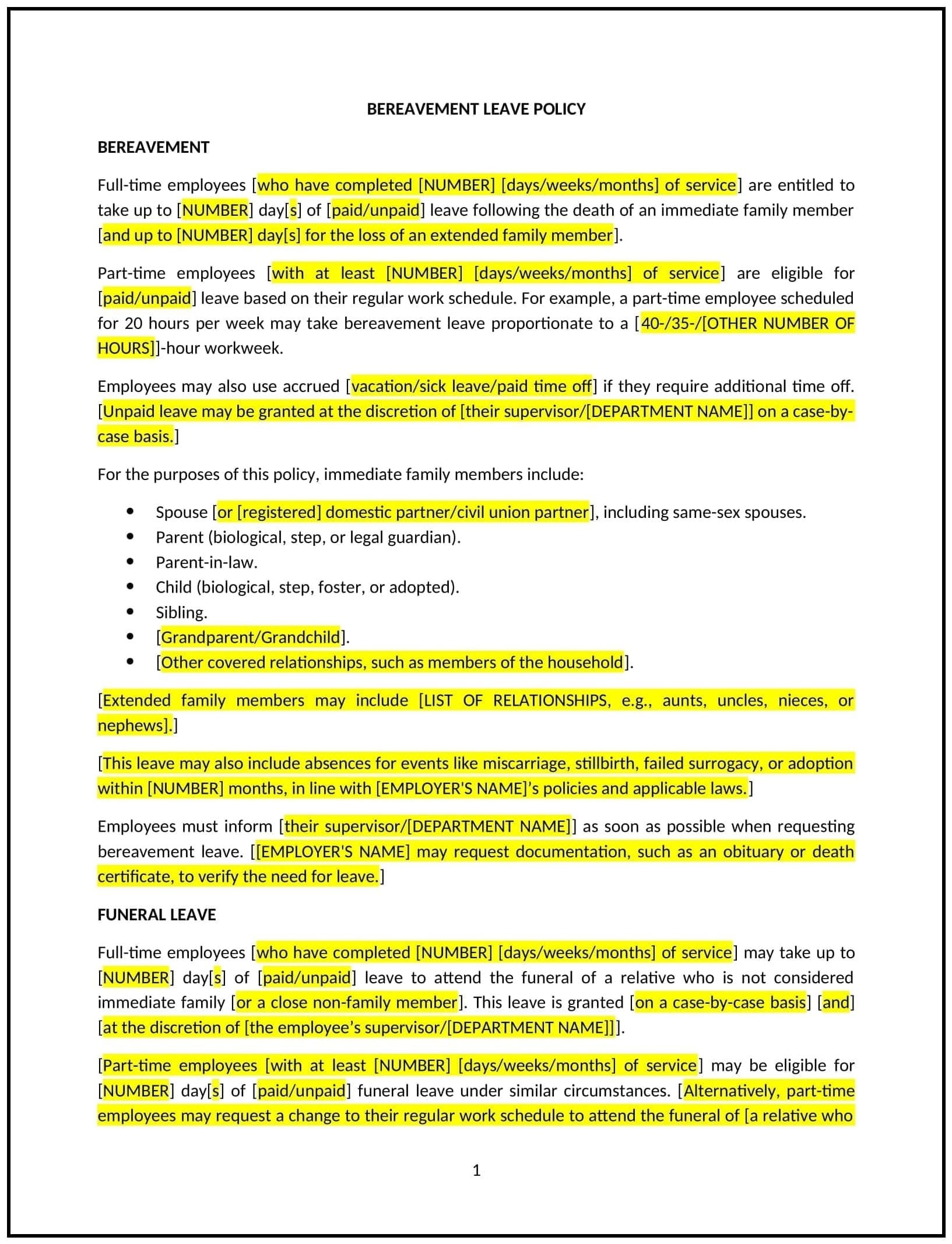Bereavement leave policy (Pennsylvania): Free template
Got contracts to review? While you're here for policies, let Cobrief make contract review effortless—start your free review now.

Customize this template for free
Bereavement leave policy (Pennsylvania)
This bereavement leave policy is designed to help businesses in Pennsylvania provide employees with time off to grieve and manage responsibilities following the loss of a loved one. Whether addressing the needs of small teams or large organizations, this template outlines clear guidelines for offering bereavement leave while reflecting Pennsylvania-specific workforce considerations.
By using this template, businesses can support employees during difficult times, maintain workplace morale, and manage leave requests fairly and consistently.
How to use this bereavement leave policy (Pennsylvania)
- Define eligibility: Clearly state which employees are eligible for bereavement leave and the qualifying relationships, such as immediate family members or other close relatives.
- Specify leave duration: Outline the number of days allowed for bereavement leave and whether this may vary based on the employee’s relationship to the deceased.
- Address leave requests: Provide steps for requesting leave, including advance notice, documentation requirements (if any), and procedures for approval.
- Reflect Pennsylvania-specific considerations: Tailor the policy to align with the needs of local industries and labor market practices in Pennsylvania.
- Support employee needs: Include options for additional unpaid leave or other flexible arrangements when appropriate.
Benefits of using a bereavement leave policy (Pennsylvania)
A well-structured bereavement leave policy supports employee well-being and workplace stability. Here's how it helps:
- Promotes compassion: Provides employees with the time and space needed to grieve without workplace pressures.
- Supports workplace morale: Demonstrates the organization’s commitment to supporting employees during personal challenges.
- Encourages consistency: Establishes clear guidelines to manage leave requests fairly and equitably.
- Reduces misunderstandings: Clarifies procedures for requesting and managing bereavement leave, minimizing workplace conflicts.
- Reflects local needs: Addresses Pennsylvania-specific workforce expectations and practices for offering compassionate leave.
Tips for using a bereavement leave policy (Pennsylvania)
- Communicate expectations: Ensure employees understand the policy and procedures for requesting bereavement leave during onboarding and through regular updates.
- Train managers: Equip supervisors with the tools to handle leave requests compassionately and fairly, while minimizing workplace disruptions.
- Provide flexibility: Consider allowing additional unpaid leave or remote work options for employees needing more time to manage their loss.
- Maintain confidentiality: Handle bereavement leave requests and related information with sensitivity and discretion.
- Review periodically: Update the policy to reflect changes in Pennsylvania labor laws or organizational priorities.